20+ SAMPLE Sales And Marketing Agreement
-
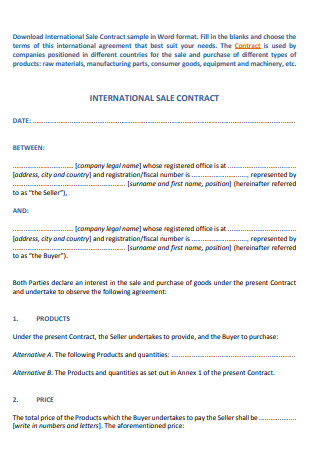
International Sales Contract Agreement
download now -
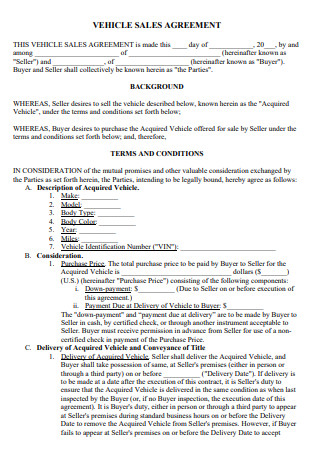
Vehicle Sales Agreement
download now -
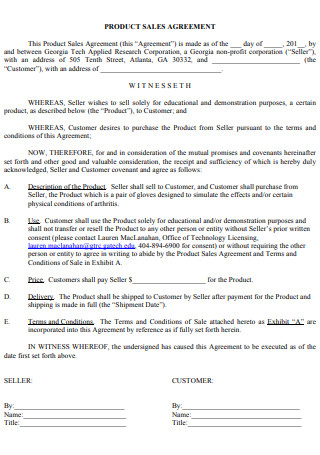
Product Sales Agreement
download now -
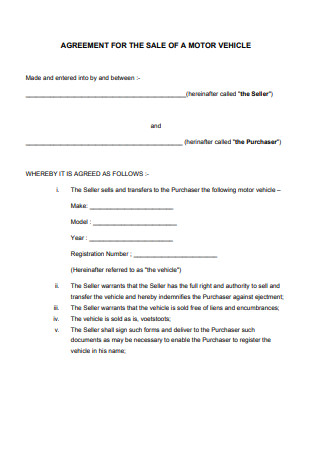
Agreement For The Sales of Motor Vehicle
download now -
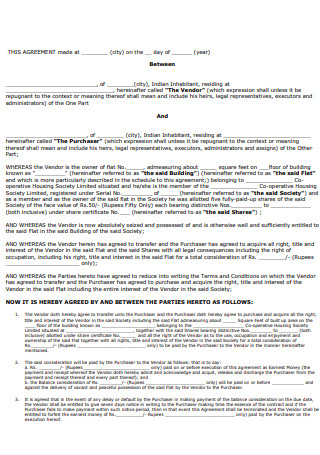
House For Sale Agreement
download now -
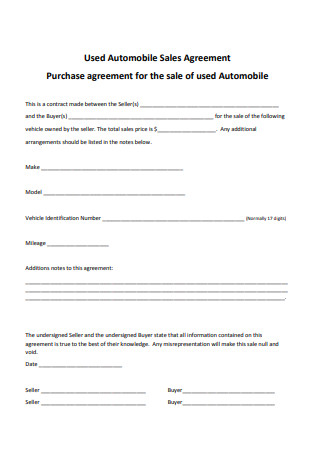
Used Automobile Sales Agreement
download now -
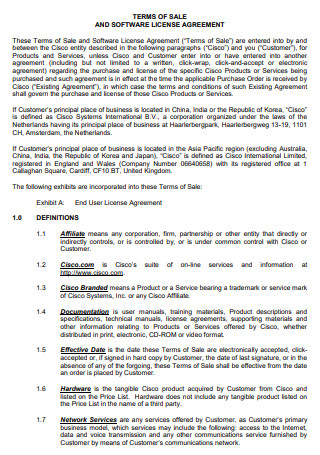
Terms of Sale And Software Licence Agreement
download now -
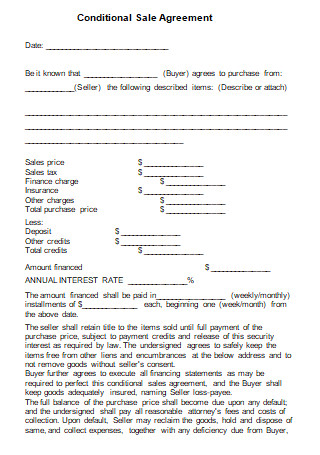
Conditional Sales Agreement
download now -
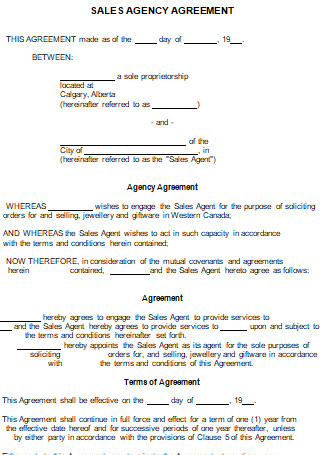
Sales Agency Agreement Template
download now -
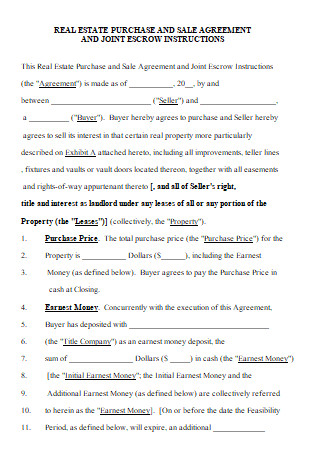
Real Estate Purchase & Sale Agreement
download now -
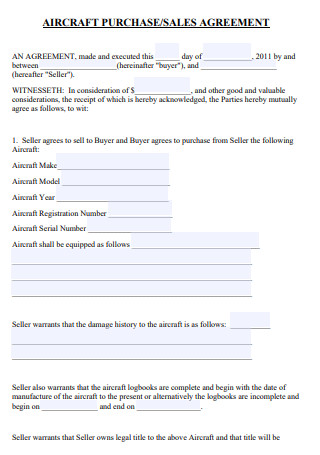
Aircraft Purchase Sales Agreement Form
download now -
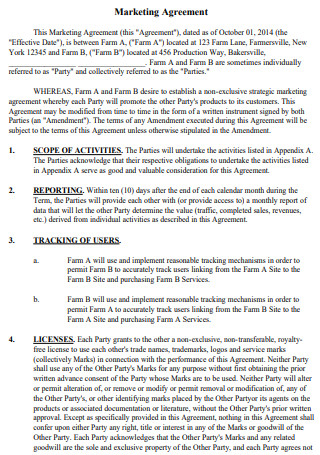
Sample Marketing Agreement
download now -
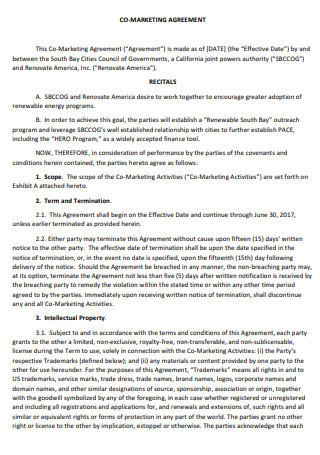
Co Marketing Agreement
download now -
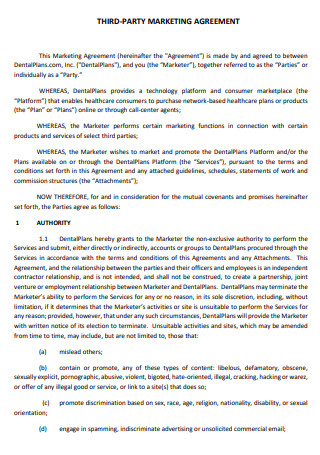
Third Party Marketing Agreement
download now -
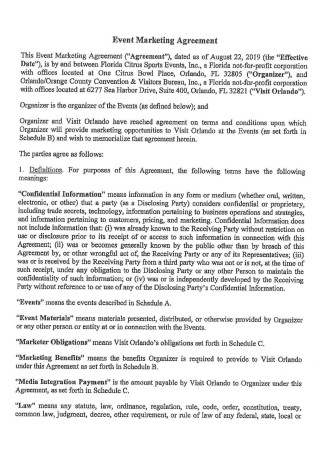
Event Marketing Agreement
download now -
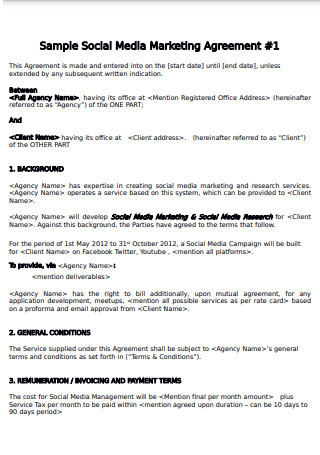
Social Media Marketing Agreement
download now -
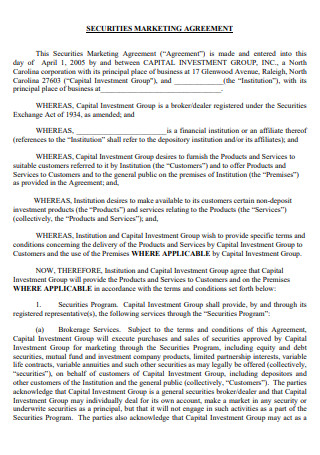
Securities Marketing Agreement
download now -
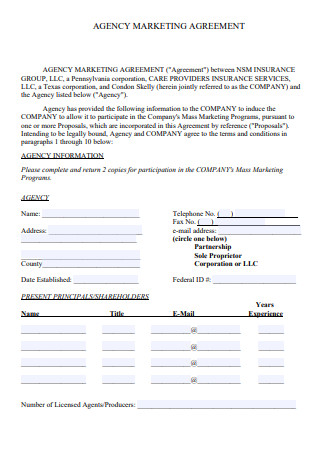
Agency Marketing Agreement
download now -
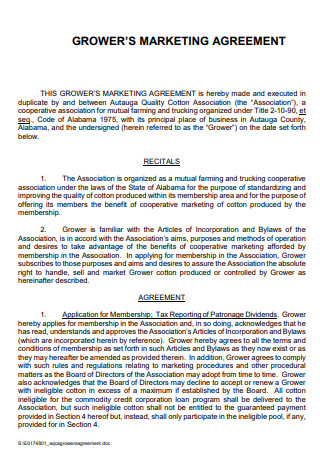
Growers Marketing Agreement
download now -
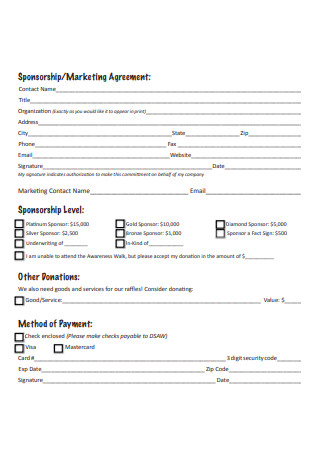
Sponsorship Marketing Agreement
download now -
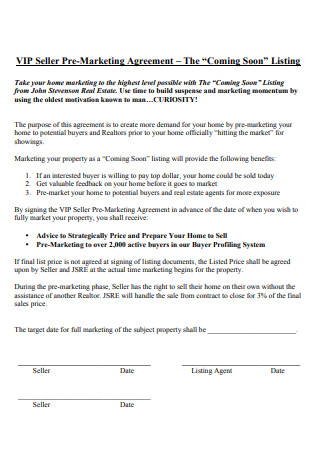
Seller Pre Marketing Agreement
download now
FREE Sales And Marketing Agreement s to Download
20+ SAMPLE Sales And Marketing Agreement
What is a Sales and Marketing Agreement?
How does a Sales and Marketing Agreement Unite the Departments?
Ways on Developing a Sales and Marketing Strategy
Common Problems Between Sales and Marketing Departments
How to Make an Effective Sales and Marketing Agreement
FAQs
What happens when a party violates the agreement?
What is an Exclusive Rights Marketing Agreement?
What is the difference between an MQL and an SQL?
What is a Sales and Marketing Agreement?
A sales and marketing agreement is a legally-binding agreement that could act as an intermediate between the sales and marketing departments by providing accountability standards and creating a clear lead scoring material. Sales and Marketing agreements have become essential to the business sector because more often than not, these two departments don’t seem to be always on the same page. The agreement lays out how the leads (marketing-qualified leads and sales-qualified leads) are created, managed, and delivered to the sales team.
How does a Sales and Marketing Agreement Unite the Departments?
Here are the different ways that an effectively written sales and marketing agreement can bring the sales department and the marketing department on full synchronization:
- It helps both departments define the follow-up time for the leads that have been received by the marketing department.
- It helps create a criteria-based lead distribution process that is a massive help in optimizing sales
- A sales and marketing agreement provides clear marketing goals which are designed to create clear marketing-qualified leads
- Helps define an early nurturing process with the objective of creating as much high quality leads as early as possible
Ways on Developing a Sales and Marketing Strategy
Planning an effective Sales and Marketing Strategy today can lead to a significant increase in return of investment (ROI) in the future. It can put you under a lot of pressure, but it should be rewarding in the end when done properly. Here are some ways a sales and marketing strategy is properly developed:
Common Problems Between Sales and Marketing Departments
Although these two departments share a lot in common, the relationship between sales and marketing departments can be a bit unharmonious. This can affect how the company is run and may lead to a nosedive in a company’s efficiency in productivity. Here are some common problems that these departments face:
How to Make an Effective Sales and Marketing Agreement
When making a sales and marketing agreement, you should consider the purpose and goals of each team so that everything they need is addressed and they stay on the same page. Also, make sure that each goal aligns with each team’s mentality. Here is a guide on making a sales and marketing agreement:
1. Identifying the parties involved in the agreement
In this step, it is important to identify the full names of the parties involved and to indicate their respective roles in the agreement. The company that is to make the agreement is designated as the producer, and the client in the agreement will be designated as the customer. It is necessary to identify the roles to designate their responsibilities and duties on the agreement without mentioning the names repeatedly throughout the agreement. You can start the document by writing the date, address, and title of the agreement.
2. Write the important details of the agreement
In this part, now you can begin drafting the main body of the sales and marketing agreement. There are several clauses you must include but that depends on what the needs of the company and the customer are. Here, you enumerate all the important details you want to happen. The terms and conditions specified by both parties should be evident from this sales and marketing agreement. It is also recommended that you take into account the project that the company is currently working on to fine-tune the agreement. The important sections of the agreement to be made include the titles, expiry/effectiveness dates, names, scope of work, copyright protection, confidentiality clause, indemnity clause, and signature lines of the parties involved. It should also include a clause that states any modification of the agreement is subject to the prior approval of the court. Also, ensure that the clauses included are designed to protect both parties in case something happens.
3. Verify the document and get legal advice.
In this step, it is important to go through the agreement and give it a proper verification process after producing your initial draft. Make sure that nothing of importance is left out, and nothing unnecessary to the agreement or project is included in the document. The process of editing consists of the examination of the entire material, structure, clarity, and style. Present the paper to a legal professional for evaluation after thorough rewriting and editing. It is always advisable to seek a legal professional’s advice to help you find ways to produce effective and legal documents.
4. Have the involved parties sign the sales and marketing agreement.
Once the sales and marketing agreement has been finalized, then the terms stated inside it can now be put into motion by having the parties involved sign the agreement. You can also give it one final look to make sure that the terms satisfy all parties. Once the terms have been agreed, then it is now time to put the pen into paper, and the agreement is then signed.
FAQs
What happens when a party violates the agreement?
Whenever a party violates the terms stated in the sales and marketing agreement, legal action will be taken, according to what was agreed upon in the document. The solutions in remedying the agreement can be one of the following:
- Compensation damages – the goal is to make the non-breaching party whole as if the damage never happened in the first place
- Punitive damages – happens when the breaching party acted egregiously upon breaching the agreement. The non-breaching party then receives a payment that is more than the damaging amount
- Liquidated damages – the damage amount to be compensated must be a reasonable estimate of the actual damages that were inflicted
- Nominal damages – this occurs when the non-breaching party never suffered a monetary loss and is therefore awarded a token award by the arbitrator or the court as a result.
What is an Exclusive Rights Marketing Agreement?
By definition, an exclusive rights marketing agreement is a type of marketing agreement between the distributor and the company that grants the distributor the rights to some amount of the profit of the sale of a product in return for selling it. This is usually used by small businesses that do not have enough resources or capacity to operate their own sales department or cannot sell the product by themselves. Instead, they employ a distributor and in turn, the distributor will be the one who will sell the products for the small business, and they get a small amount of commission in return.
What is the difference between an MQL and an SQL?
A Marketing Qualified Lead (also known as an MQL) can be considered a site visitor that a company’s marketing team has deemed to be a potential customer in the future. An MQL is a reasonably qualified lead who matches the buyer personas created by the marketing team, but one who is not quite ready yet to make a purchase.
A Sales Qualified Lead (also known as an SQL) can be considered as a lead that a company’s sales team has decided to be worth pursuing. SQLs are usually now at the decision-making stage of their journey where they usually prefer sales-focused content and support. An SQL is a lead with an intent to buy and is a contender to make a purchase in a company.
The key differentiator of these two leads would be their intent to buy. They vary between different types of industry and even within individual organizations or companies.
An effective and properly drafted sales and marketing agreement can unite the sales and marketing department. It enables them to be on the same page of the process in order to let their activities synchronize to reach the company’s established goal despite the various differences that these two departments present. It also enables them to collaborate better and binds them legally for protection should any inconveniences arise. In this article, examples of effective agreements are posted above for reference and personal use.
